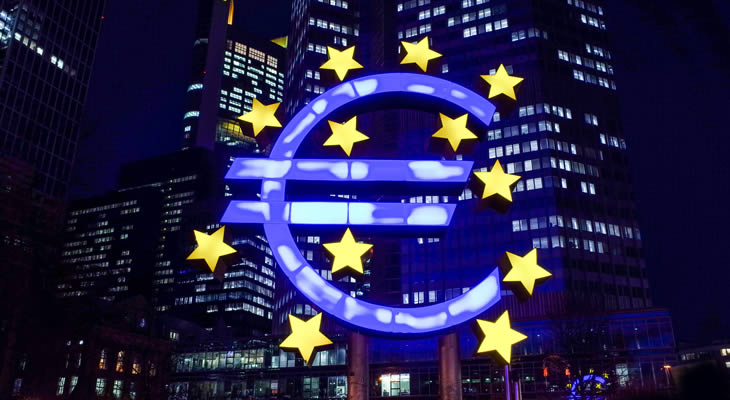Could ECB Be More Hawkish Than Expected? Pound to Euro Exchange Rate Tumbles
The Pound to Euro (GBP/EUR) exchange rate looks on track to end the week below its opening levels despite testing a three-week-high of 1.1350 near the beginning of the week.
The Euro (EUR) saw a surge in demand following the latest meeting minutes report from the European Central Bank (ECB) and GBP/EUR currently trends almost half a cent below the week’s opening levels – near a weekly low of 1.1206.
December’s European Central Bank meeting was largely unsurprising, but the meeting minutes report from that meeting was published on Thursday and hinted that the bank may be looking to change its language on forward guidance soon.
‘Looking ahead, the view was widely shared among members that the governing council’s communication would need to evolve gradually,
‘The language pertaining to various dimensions of the monetary policy stance and forward guidance could be revisited early in the coming year.’
The comments boosted speculation that the bank could be heading towards a hawkish tone sooner than markets had expected. This left the Euro more appealing and the currency’s outlook rose.
Pound (GBP) Exchange Rates Lack Support from Recent Data
The Euro easily advanced against a weak Pound (GBP) towards the end of the week, as this week’s data and political developments failed to give investors much reason to buy the British currency.
Britain’s November manufacturing and industrial production results beat expectations, as did NIESR’s estimate for Q4 UK Gross Domestic Product (GDP).
However, Britain’s November trade deficit widened considerably worsening concerns that the low value of the Pound would not help to lighten the figure during the Brexit process.
Brexit concerns have continued to weigh on Sterling trade too. Mayor of London Sadiq Khan commissioned an impact assessment for different Brexit scenarios on the UK economy, and noted that in a ‘no deal’ scenario Britain could lose almost half a million jobs.
Pound (GBP) Forecast: Brexit News and UK Inflation Data Could Boost Sterling Outlook
The Pound did find some unlikely support towards the end of the week, in the form of fresh comments from ex UKIP boss Nigel Farage.
Farage, a staunch Eurosceptic, stated that a second Brexit referendum may able to silence those who still oppose Brexit. While his comments have not gained traction within the UK government, any sign of a second referendum being possible would boost the Pound outlook.
If talk of a second referendum somehow gains momentum in the coming days or weeks, the Pound outlook will rise.
However, until then investors will be anxiously anticipating Tuesday’s UK Consumer Price Index (CPI) report.
If UK inflation comes in higher than expected, the Pound outlook is likely to rise as investors speculate that the Bank of England (BoE) could be pressured into taking a more hawkish tone on monetary policy.
Euro (EUR) Exchange Rates Forecast to be influenced by Eurozone Inflation
Next week will see the publication of the Eurozone’s final December Consumer Price Index (CPI) results. German data will be published on Tuesday, followed by the Eurozone’s overall figures on Wednesday.
The results are likely to meet projections, but if they come in higher than expected the Euro could strengthen further as investors ramp up speculation of a more hawkish European Central Bank (ECB).
On the other hand, the Euro could shed some of its recent gains if the inflation figures fall short of forecasts.
Demand for the Euro could also be driven by Eurozone political news, amid hopes that there will be more breakthroughs in German coalition talks.
Markets are increasingly hopeful that Angela Merkel’s CDU Party can form another ‘grand coalition’ with the SPD Party. Further signs of progress in negotiations will likely support Euro trade.


Comments are closed.